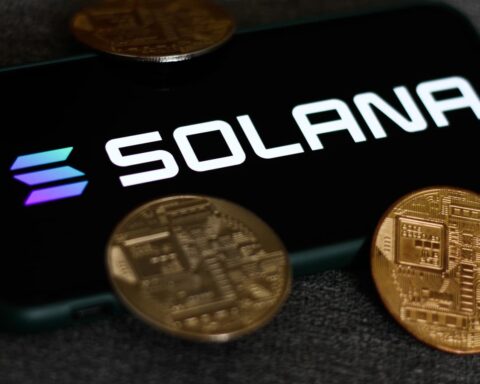The current state of the blockchain industry is marked by its rapid development and expansion. Over the past few years, blockchain technology has garnered significant interest and uptake, with many enterprises from diverse sectors adopting it to enhance their operational efficiency.
Enterprises from various industries are adopting blockchain technology to streamline their business operations. Blockchain offers a decentralized and secure platform for storing, managing, and sharing data, making it ideal for improving efficiency and security.
Supply chain management and financial industry payments are the common use cases for blockchain in the enterprise space. In contrast, identity management can help prevent identity theft and fraud, improving overall security.
Enterprise blockchain limitations
The one-size-fits-all approach of most enterprise blockchain solutions is a major limitation for businesses looking to leverage the technology. Customization options are often limited, preventing companies from tailoring operations to their unique needs and requirements. This lack of flexibility can cause frustration and inefficiencies limiting mainstream technology adoption.
Additionally, interoperability is a significant issue, as many blockchain platforms are siloed and unable to communicate. This can be a considerable challenge for companies that operate in complex ecosystems and require seamless data sharing. The lack of seamless integration also serves as a hurdle for enterprises to deploy on blockchains quickly.
Leading players, including Aurora Cloud, are driving innovation by addressing these issues empowering enterprises to leverage blockchain to the best potential and drive new revenue streams for their businesses.
How Does Aurora Cloud Fit in the Puzzle?
Aurora Cloud is an enterprise blockchain solution that provides a customizable kit enabling web2 enterprises to create their blockchain akin to Aurora. The blockchain’s transaction throughput is above $10 million per day. Aurora Cloud is distinguished from other enterprise blockchain solutions by its Aurora Borealis infrastructure, which enables customizing operations, and its ability to integrate with Aurora Silos, Near, and Ethereum, promoting interoperability.
Blockchain newcomers may find it hard to grasp the concept of transaction fees and network-specific tokens, hindering businesses from adopting blockchain technology. However, Aurora Cloud’s Borealis Business is a revolutionary solution that simplifies the user experience and allows for flexible economic models. This transaction processing and accounting engine hides transaction fee complexities, enabling businesses to integrate blockchain technology into their operations smoothly. Moreover, enterprises can permission native blockchains in a way wherein they can control who interacts with the blockchain as well as add sophisticated whitelisting features.
The ecosystem provides specialized blockchains explicitly designed for Aurora clients and offers more than just compatibility with Ethereum. These blockchains boast an array of cutting-edge innovations, including unique token and fee mechanisms, strict access controls, exceptional transaction throughput, and various other features. The deployment of Aurora Cloud on the Near Blockchain also provides enhanced security through replica smart contracts that inherit the security model of Near, ensuring that the blockchain is secure and reliable. Moreover, the cross-chain communication between independent Aurora Silos with Near and Ethereum redefines enterprise blockchain’s interoperability.
Conclusion
The future of the enterprise blockchain market looks promising and has the power to transform global markets and industries. However, innovation remains at the forefront with newer technologies, including Zk proofs driving momentum in the space. The current rate of blockchain adoption by enterprises is slow; however, we will witness a major uptick when sophisticated features strike in, allowing enterprises to plug in blockchain systems seamlessly.
The adoption of enterprise blockchain solutions is paramount, knowing that it can serve as a bridge to onboard mass users in web3.




